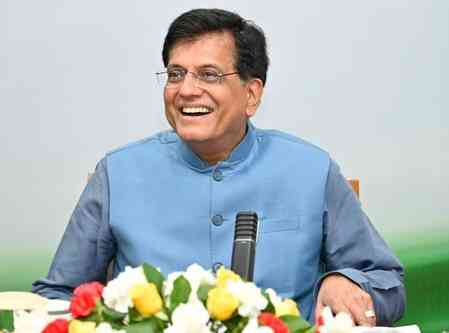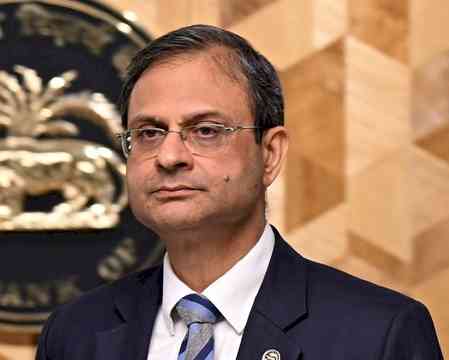Post Budget-2024 Quotes From Industry Leaders-5

Sanjana Desai, Executive Director of Mother's Recipe
“The 2024 budget brings a sense of optimism and growth opportunities for the FMCG sector. The proposal to abolish the so-called angel tax for all classes of investors will significantly bolster the entrepreneurial spirit and support innovation within our industry. Additionally, the increase in the standard deduction for salaried employees will enhance consumer purchasing power, which is beneficial for our brand as it may lead to increased demand for our products. We appreciate the government's efforts to simplify taxation and promote a more business-friendly environment.”
Sapan Gupta, Chief Financial Officer, Rodic Consultants
“The Union Budget 2024-25 places major emphasis on farmers, poor, women and youth of the country and various initiatives have been proposed to support the cause. Budget underscores the critical role of infrastructure in driving economic progress with substantial investments in railways, roads, and airports. The allocation of Rs 1.5 lakh crore for rail infrastructure and the expansion of the National Highway network will enhance connectivity, reduce logistical costs, and promote regional development.
The significant focus on the eastern regions, including Bihar, Jharkhand, West Bengal, Odisha, and Andhra Pradesh, will transform these areas into growth engines, aiding in the attainment of Viksit Bharat. Furthermore, the ₹50,000 crore allocated for urban infrastructure, smart cities, and urban mobility projects will improve urban living, create jobs, and stimulate economic activity.
The government's commitment to infrastructure development is evident and pivotal for achieving long-term economic growth and prosperity.”
Dipti Deshpande, Principal Economist, CRISIL Limited
“The budget responsibly deploys the higher revenues (tax and non-tax revenues) on reducing the fiscal deficit, sustaining spending on investments and making way for higher spending to support segments of the economy that require support. Overall, the quality of spending remains intact despite the slight tilt towards revenue spending.
A lower fiscal deficit and non-inflationary nature of spending are inflation-positive, while lower market borrowings will help temper yields. We expect the 10-year government bond yields to average 6.8% by March 2025, from 7% in March 2024. On the back of a normal monsoon and cooling food inflation, we expect headline consumer price inflation to soften to 4.5% average this fiscal from 5.4% in the last. We maintain our GDP growth forecast at 6.8% for fiscal 2025 – a moderation from 8.2% in fiscal 2024 led by tighter lending conditions.”
Rahul Guha, Director, CRISIL Ratings
“Safe Harbour rates for foreign mining companies selling raw diamonds in India will benefit the domestic diamond sector. 92% of the raw diamonds mined globally are polished in India. With this announcement, import prices for diamonds will reduce, which will have a spillover effect on polishers and exporters, reducing export and retail prices in tandem. This will likely push polishers’ volumes in an otherwise subdued export environment, while supporting operating profitability.”
Aditya Jhaver, Director, CRISIL Ratings
“The reduction in basic customs duty on gold to 6% from 10% is expected to provide a fillip to gold jewellery sales, which have been tepid in the recent past because of high prices. This will drive up volumes for domestic gold jewellery retailers including during the festive and wedding seasons..”
Vikas Bajaj, President of Association of Indian Forging Industry (AIFI)
“We welcome the budget presented today, which lays out a comprehensive roadmap for 'Viksit Bharat' across key sectors including manufacturing and services. The emphasis on promoting MSMEs through enhanced credit support and infrastructure development is particularly commendable. These measures will not only bolster job creation but also enhance competitiveness, paving the way for a robust industrial growth trajectory. For the manufacturing sector, the proposed incentives for additional employment will significantly boost job creation and strengthen the manufacturing ecosystem. The special attention given to MSMEs, particularly labour-intensive manufacturing, through financing, regulatory changes, and technology support, is a crucial step toward enhancing global competitiveness.
The introduction of a credit guarantee scheme for MSMEs, providing up to ₹100 crore without collateral, along with the new credit assessment model and enhanced Mudra loan limits, will ensure broader financial inclusion and stability. The commitment to developing 'plug and play' industrial parks and reducing customs duty on key raw materials like ferro nickel and blister copper will lower production costs and enhance competitiveness. Additionally, the financial support for shifting micro and small industries to cleaner forms of energy and the facilitation of investment-grade energy audits in 60 clusters, with expansion to 100 clusters, will greatly benefit MSME units in the forging sector. Overall, this budget is a significant step towards 'Viksit Bharat,' and we at AIFI are optimistic about its positive impact on the forging industry and the broader manufacturing sector."
Murali Iyer, Country CFO, IKEA India
“The budget demonstrated commitment to supporting MSMEs and women via access to finance, infrastructure and skilling support. Innovative schemes, such as internship opportunities for youth and the development of Digital Public Infrastructure reflect the government’s forward-thinking approach. Significant investments in infrastructure and tax relief measures, such as an increased standard deduction for salaried employees, will increase disposable income for consumers, providing a boost to retail. Additionally, the focus on climate sustainability through a roadmap for transitioning industries is most welcome. We believe the focus on manufacturing, youth, skilling, employment generation, sustainability, and women empowerment will lead to a more inclusive growth and economy.”
Kamal Bali, President & MD - Volvo Group in India
“It is one of the most thoughtful, pragmatic and inclusive budgets, that addresses most sections of our society and economy. A growth oriented budget which continues to be large on infrastructure capex, and on schemes for skilling & employment generation, yet fiscally responsible with a good glide path, for controlled inflation & macroeconomic stability.”
Meenu Singhal, Regional Managing Director, Socomec Innovative Power Solutions, Greater India
“Today’s budget announcement marks a pivotal moment for India with funding focus on 9 priorities including Productivity and resilience in Agriculture, Employment & Skilling, Human Resource Development and Social Justice, Manufacturing & Services, Urban Development, Energy Security, Infrastructure, Innovation, Research & Development and Next Generation Reforms generating ample opportunities for all.
This budget paves way for a significant growth towards a 'Viksit' Bharat. With one lakh crore fund being allocated for research and innovation, it will help in providing a substantial sustainable growth opportunity for our country by 2047. The policy highlighting on the use of appropriate energy transition will help in balancing the imperatives of employment leading to a more organized growth and environmental sustainability.
The budget’s emphasis on providing skilling programmes will empower the youth in obtaining quality employment opportunities. We appreciate government’s move to reduce the corporate tax for foreign companies from 40 per cent to 35 per cent. This endeavour will improve the overall business environment, making it conducive to foreign direct investments into the country which will create more employment opportunities for the youth and stimulate economic growth. The Angel Tax abolition would also super charge the startup ecosystem.”
Vinod Kumar Gupta, Managing Director, Dollar Industries Limited
“We welcome the measures announced in the Union Budget 2024-25 aimed at enhancing the competitiveness of our textile exports. The expansion of the exempted goods list for textile exports is a forward-thinking move that will further boost our export potential. These initiatives reflect the government's commitment to supporting the textile sector and will undoubtedly contribute to its growth and sustainability.”
Rahul Prithiani, Senior Director & Global Head, Energy and Sustailability, Consulting, CRISIL Market Intelligence and Analytics
“The full budget for this fiscal moves the needle on the development of energy transition pathways and the shift to emission-based targets for the hard-to-abate sectors. This will drive investments in sustainable technologies and lay the framework for the development of the carbon market. Additionally, reduction in basic customs duty on battery minerals, focus on mining critical minerals, impending pumped storage policy for round-the-clock power, and taxonomy for climate finance indicate a clear push towards de-carbonisation..”
Abrarali Dalal, Director & CEO, Sahyadri Hospitals -
“The government has allocated ₹89,287 crore for the development, maintenance, and improvement of the country’s healthcare system, a slight increase from ₹88,956 crore in FY24. The union budget's removal of basic customs duty on three critical cancer treatment drugs and the reduction of duties on medical technologies such as X-ray tubes and flat panel detectors will notably enhance the affordability and accessibility of healthcare, particularly for advanced cancer treatments. Through the 'Anusandhan National Research Fund' the increased research funding will foster innovation, development and improved treatment options in the healthcare sector. Although these initiatives show promise, there is still potential for further enhancements to fully bolster India's healthcare infrastructure.”
Gautam Shahi, Director, CRISIL Ratings
“For the real estate sector, the impact of changes in taxation is expected to be mixed. On the one hand, the reduction in the long-term capital gains tax rate from 20% to 12.5% should boost investments over the near to medium term. On the other, the removal of indexation benefit will increase the tax incidence on property sale, especially for older properties.
Further, the Centre’s move to persuade state governments to reduce stamp duties, especially for women home-owners, can have a positive impact.
On affordable housing, the move to provide additional one crore housing units to urban poor and middle-class families under the Pradhan Mantri Awas Yojana (PMAY) scheme, with an incremental budgetary allocation of Rs 2.2 lakh crore over the next 5 years, will sustain the growth momentum in this segment.”
Anuj Sethi, Senior Director, CRISIL Ratings
“The increase in the allocation of interest-free loans to state governments by 15% to Rs 1.5 lakh crore for spending on capital expenditure reflects the central government’s continued focus on infrastructure development. That said, the availability of the majority of these funds will be subject to the state governments undertaking various reforms, including land and labour reforms. In the past, states had utilised only 80-85% of the budgeted levels due to their inability to meet the conditionalities. Hence, undertaking the reforms in a timely manner, which can allow states to utilise the earmarked amount, remains critical.”
Rohit Taneja, Founder and CEO, Decentro
“The 2024 Union Budget showcases the government's dedication to fostering innovation and technological growth. It focuses on SMEs and manufacturing with initiatives like the self-financing guarantee fund and enhanced PSB capabilities for the SME assessment. A five-scheme package supports financing, regulatory changes, and technology, amplifying Make In India movement that is a huge tail wind for infrastructure building companies like us.
These measures, coupled with the extension of tax benefits for startups, indicate a promising environment for digital growth. At Decentro, we see this as a prime opportunity for fintech to contribute deeper across India’s digital infrastructure and double down on the technology-driven reforms that have boosted productivity and financial inclusion over the last decade.
We are particularly excited about the potential to leverage these initiatives further to enhance the fintech infrastructure and drive seamless integrations across banking.”
Murty LVLN, MD & CEO, Dvara KGFS
“The Union Budget 2024 has acknowledged the need to support MSMEs and improve skill training, especially among the rural population. Significant focus is given to the agricultural sector to increase digital public infrastructure which will push more farmers to be a part of the registry making the agriculture sector more transparent. This move will pave the way for fintechs and agricultural fintechs to support farmers with better financial offerings. We welcome the government’s initiative to introduce a new mechanism for MSMEs to continue seeking bank credit during stress period to ensure smooth functioning. The continuous focus of the budget on the MSME sector, to compete globally, will result in a positive incentive for the rural parts of the country, thereby, increasing the rural GDP.”
Subha Sri Narayanan, Director, CRISIL Ratings
“The measures pertaining to tax rates on capital market transactions – Securities Transaction Tax on derivatives, Long Term Capital Gains tax, and Short-Term Capital Gains tax – are aimed at bringing in greater stability in the equity markets by incentivising long-term investment activity and curbing the derivatives segment, where traded volume has risen over 99%. There could be an impact on market volume in the near-term that, in turn, could affect the revenue of brokerage houses which have enjoyed rising profitability because of the market upcycle. At the same time, they have also had to realign their business models to manage the evolving regulatory environment, with the most recent change being the revision in the charges levied on stockbrokers by market infrastructure institutions.”


 City Air News
City Air News 









